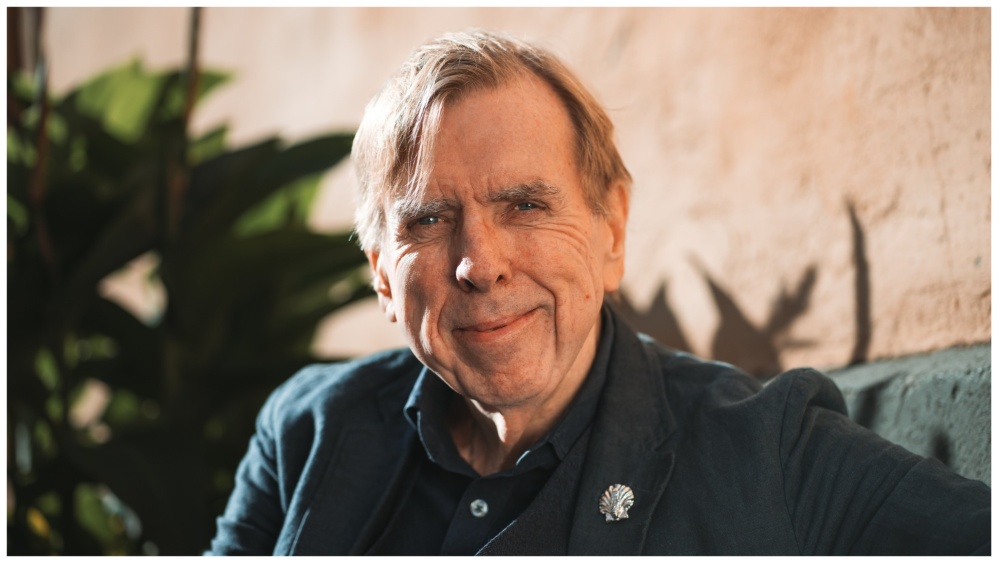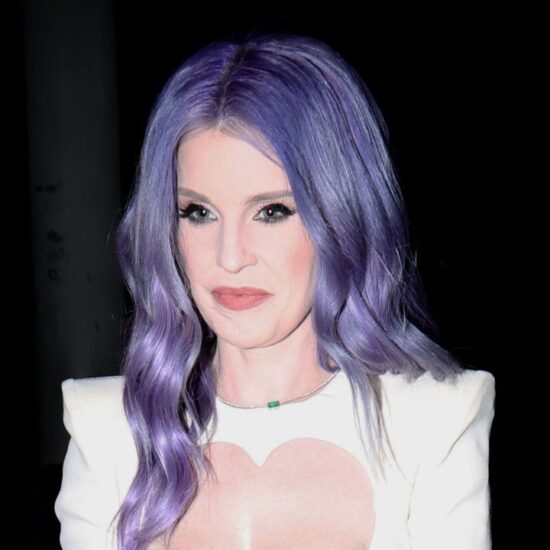
Timothy Spall is ready to bring “Joy to the World.”
“It’s a Christmas story, but an unusual Christmas story,” he tells Variety about his upcoming film, directed by Edward Hall. Calico Pictures and Studio Hamburg are on board, while James Nesbitt co-stars.
“It’s about a troubled 12-year-old kid who is pretty obnoxious, really. He is clever but doesn’t like his life. His mom is struggling and his brother is desperate for a present he is not going to get. He is full of hate. Then he witnesses a robbery.”
It’s an unusual robbery, however, taking place during a “Santa Dash.”
“He sees one of them rob a bank, tries to pursue him and then encounters this old man in the woods, under the tree, claiming he is Father Christmas. Obviously, the kid thinks he’s mad. It’s a sweet movie, but it has this hard edge to it, too. It’s all about the battle for this boy’s soul. Which way is he going to go?”
Spall, currently in Finland promoting “The Last Bus,” will do “a bit of a Nordic accent” in the film.
“When I was being made up as Father Christmas, they would always say: ‘Can we film you?’ I said no. How many magicians reveal their tricks?”
“I have seven grandchildren. One of them is always watching ‘Enchanted’ and goes: ‘Oh, fat granddad.’ So she knows, but I hope other kids won’t recognize me this time. I want them to wonder: ‘Is that real Santa?’”
The BAFTA-nominated actor, known for acclaimed collaborations with Mike Leigh, is no stranger to younger audiences.
“Harry Potter is still such a big deal. It’s edging towards becoming a bit of a religion. It’s bizarre,” he says. In the franchise, Spall played Peter Pettigrew a.k.a. Wormtail.
“It’s great storytelling, but it was also beautifully made. One day, I wandered into a studio and there was someone [manually] putting leaves on a tree, one by one. That’s dedication. They were doing that for the audience.”
These days, the audience is very much on his mind.
“We have to do our best to make sure they are getting their value for their money. Actors, writers, we are doing it because we love it, because we have this compulsion. But as I get older, I am very aware that you are asking someone to put their hand in their pocket and take out the money they’ve earned through the sweat of their brows,” he notes.
“Some films deserve to die, but it’s more difficult to kill them now. Take ‘The Last Bus’: it was made four years ago and we are now in Helsinki and it’s getting released here. Reviews were a bit unkind, but the audience loved it.”
“Because of streaming, films can last longer. There are all sorts of issues with social media, but people say they liked something and the jungle telegraph of the internet just goes off. Someone told me: ‘I went to see your film and cried so much. It was unbearable.’ I replied: ‘I am very sorry about it, and thank you very much,’” he laughs.
“I am not saying it’s a social service, but there is a cathartic quality to these things.”
Recently, his turn in Saul Dibb-created BBC show “The Sixth Commandment,” based on the real-life murders of Peter Farquhar (played by Spall) and Ann Moore-Martin, has also been getting much love.
“I was cornered on the street, with someone yelling: ‘The Sixth Commandment!’ I knew it was good, but I was still very, very surprised. I had no idea it would catch people’s imagination that way,” he admits, praising “masterful” writer Sarah Phelps.
“Anything that can catch the banality of evil so accurately is really interesting, because it’s not a definable thing. It shows how hope turns into delusion in this quiet way, in a suburban British setting, with nice tablecloths and all this ordinariness. It’s scary, because it’s true horror.”
The stories he tells, the roles he plays, always need to feel real, he notes.
“If it’s not real, you won’t get away with it.” Which is why the use of AI is a concern.
“I am on strike because of that! That’s about intellectual property as well, about creativity and your image being your own. People are suffering now and it’s not just actors – it’s many, many crew members as well. It seems like a very important moment and we have to define it all across the board.”













